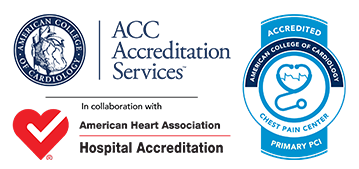About Heart Failure
The term heart failure suggests a sudden and complete stop of heart activity. But, actually, the heart does not suddenly stop. Rather, heart failure usually develops slowly, often over years, as the heart gradually loses its pumping ability and works less efficiently.
Some people may not become aware of their condition until years after their heart began its decline.
What are the Symptoms?
Perhaps the best known symptom is shortness of breath (“dyspnea”). In heart failure, this may result from excess fluid in the lungs. The breathing difficulties may occur at rest or during exercise. In some cases, congestion may be severe enough to prevent or interrupt sleep.
Being tired is another common symptom. As the heart’s pumping capacity decreases, muscles and other tissues receive less oxygen and nutrition. Without proper “fuel,” the body cannot perform as much work, and is tired.
Fluid accumulation, or edema, may cause swelling of the feet, ankles, legs, and occasionally, the abdomen. Excess fluid retained by the body may result in weight gain, which sometimes occurs fairly quickly.
Types of CHF:
Diastolic heart failure–This occurs when the heart has a problem relaxing. The heart cannot properly fill with blood because the muscle has become stiff, losing its ability to relax.
Systolic heart failure–This occurs when the heart’s ability to contract decreases. The heart cannot pump with enough force to push a sufficient amount of blood into the circulation.
Is there a Cure?
There’s no cure, but treatment can be quite successful. Patients can minimize the effects of heart failure through lifestyle changes and drug therapy.
Doctors
Department & Services

Specialty Bakersfield Reaccredited as Chest Pain Center

BHH Receives “A” in Safety
[wpseo_breadcrumb] Your digital COVID vaccine record refers to the details of your COVID vaccination as stored in the...

Get Digital Proof of your COVID-19 Vaccine
[wpseo_breadcrumb] Your digital COVID vaccine record refers to the details of your COVID vaccination as stored in the...

